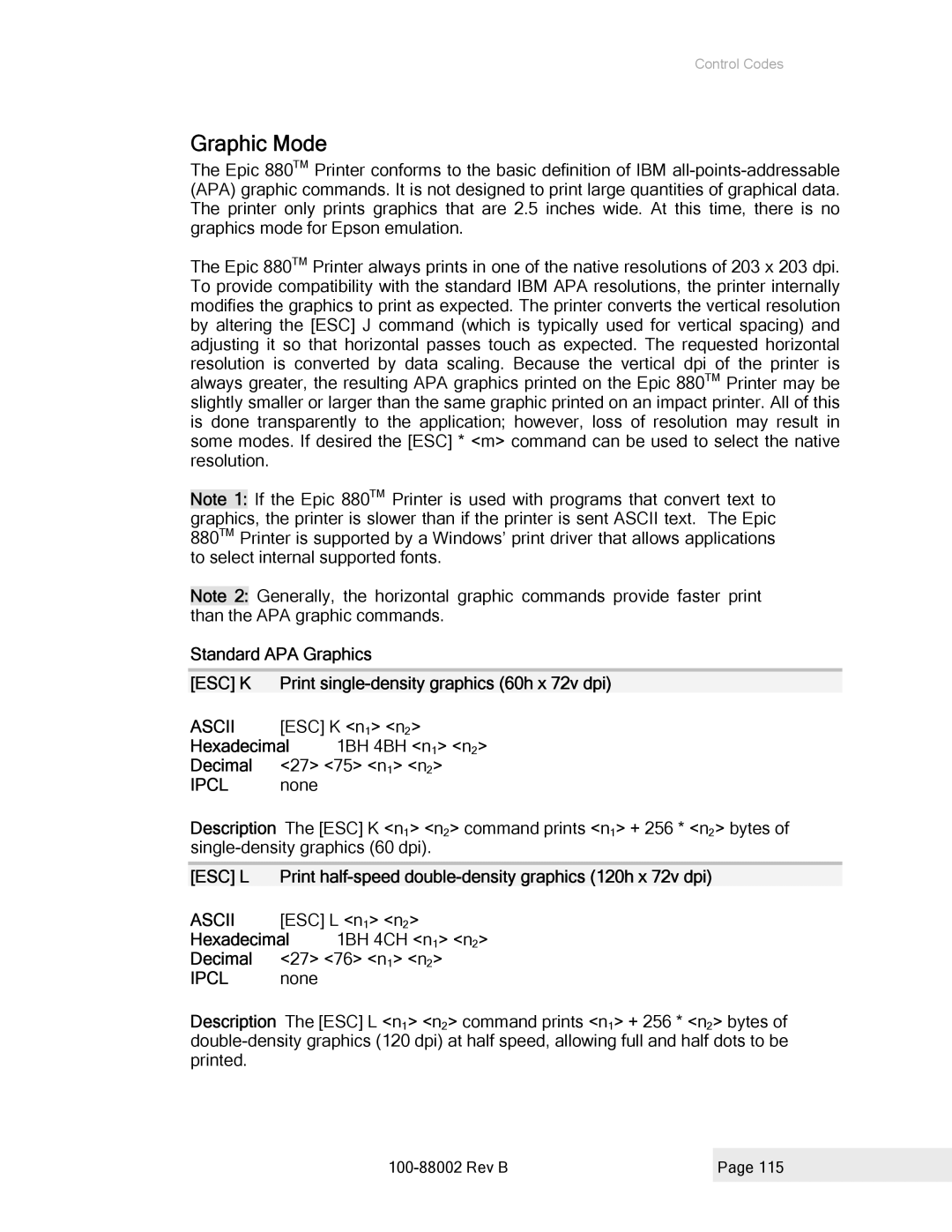
Control Codes
Graphic Mode
The Epic 880TM Printer conforms to the basic definition of IBM
The Epic 880TM Printer always prints in one of the native resolutions of 203 x 203 dpi. To provide compatibility with the standard IBM APA resolutions, the printer internally modifies the graphics to print as expected. The printer converts the vertical resolution by altering the [ESC] J command (which is typically used for vertical spacing) and adjusting it so that horizontal passes touch as expected. The requested horizontal resolution is converted by data scaling. Because the vertical dpi of the printer is always greater, the resulting APA graphics printed on the Epic 880TM Printer may be slightly smaller or larger than the same graphic printed on an impact printer. All of this is done transparently to the application; however, loss of resolution may result in some modes. If desired the [ESC] * <m> command can be used to select the native resolution.
Note 1: If the Epic 880TM Printer is used with programs that convert text to graphics, the printer is slower than if the printer is sent ASCII text. The Epic 880TM Printer is supported by a Windows’ print driver that allows applications to select internal supported fonts.
Note 2: Generally, the horizontal graphic commands provide faster print than the APA graphic commands.
Standard APA Graphics
[ESC] K Print
ASCII [ESC] K <n1> <n2>
Hexadecimal 1BH 4BH <n1> <n2>
Decimal <27> <75> <n1> <n2>
IPCL none
Description The [ESC] K <n1> <n2> command prints <n1> + 256 * <n2> bytes of
[ESC] L Print
ASCII [ESC] L <n1> <n2>
Hexadecimal 1BH 4CH <n1> <n2>
Decimal <27> <76> <n1> <n2>
IPCL none
Description The [ESC] L <n1> <n2> command prints <n1> + 256 * <n2> bytes of
| Page 115 |
|
|
